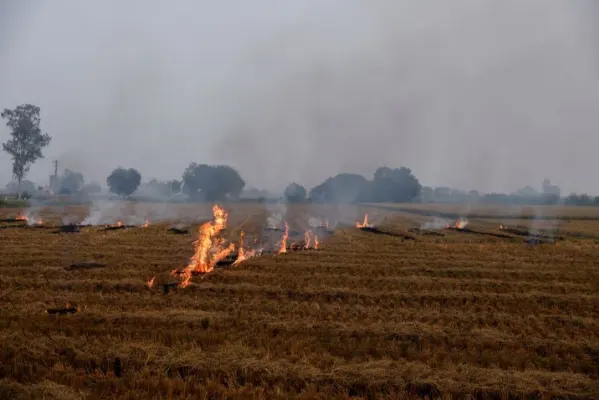Small farmer Aashish Sharma has been burning crop stubble in recent days even though he is aware of its impact on air quality nearby and in New Delhi, the world’s most polluted capital located about three hours away by road.
The air quality in Sharma’s village in Haryana state is so bad his asthmatic uncle struggles to breathe, meaning he needs a nebuliser to pump medicine directly into his lungs. “We know stubble-burning is harmful, particularly for the health of our parents and children,” said Sharma, 22, in his village in Karnal, known for its rice and wheat cultivation.
But for him, the only alternative to burning crop residues is to join the queue to hire machines to clear his field, which would cost him about $100 for his four-acre farm. The average waiting time to rent a machine is about two weeks. Buying one for nearly 300,000 rupees ($3,606) is unaffordable for the small farmers in the village, they said, highlighting the challenge authorities face in trying to improve northern India’s air every winter.
More than 85% of Indian farmers are categorised as small, meaning that, like Sharma, they own about four acres or fewer.










